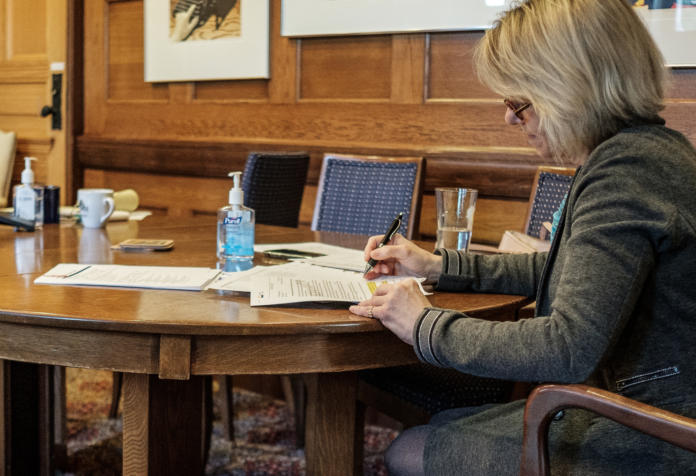Since COVID-19 cases began to ramp up in B.C. with more and more patients testing positive each day, provincial health officer Dr. Bonnie Henry has been diligently providing daily updates to the public letting us know how to approach this unprecedented global pandemic.
Every day, barring Sundays, she and Health Minister Adrian Dix have released details on how many new confirmed cases there are by health region.
However from the start, one of the most persistent questions people have had is why the Ministry will not reveal details about which cities or towns COVID-19 patients reside in.
The first explanation was privacy concerns, citing the reasoning that revealing patients’ locations could deter others from coming forward if they had symptoms of the virus.
Later, the reasoning changed after community transmission cases began to be discovered, and health officials stated that it simply does not matter where the patients reside as COVID-19 could affect anyone, anywhere.
To better explain this rationale, Dr. Bonnie Henry has penned a letter to British Columbians.
Read the full letter below:
“When an outbreak hits a community, one of the most urgent things people want is information. This is human nature, as information allows us to protect ourselves, our families and our loved ones.
Information is at the heart of public health: knowing what our risks are, where they are coming from and who is affected. One of the key ways we gather information is through active contact tracing, when public-health teams map the transmission, alert those at risk and close the circle to break the chain.
Public-health protocols also dictate that when the potential for transmission is unknown, we must immediately alert the public. From the very beginning of the COVID-19 outbreak in B.C., we have been doing exactly that – alerting people to the risks within communities through regular briefings and connecting with individuals who are close contacts. When we cannot close the circle, we open the circle.
Public health is boots-on-the-ground health care, which means teams work to connect with each and every person who may be at risk of exposure to COVID-19. We do this to provide individual support and, equally important, to continue to follow the transmission trail.
Initially, public-health teams identified the source of transmission was from travellers. That is why our briefings listed travel locations and cruise ships. With that information known, we were able to put precautions in place.
However, as we have seen here in B.C. and globally, once there is community transmission, there is no boundary to the spread of COVID-19. Simply put, the risk is everywhere.
It would be irresponsible to mention only a few communities and give people outside those areas a false sense that they are not susceptible or at lower risk. Every health region in British Columbia has people with COVID-19. Every community and home town – no matter how large or small – is at risk.
As we notify the public about COVID-19 cases, we have been careful about how much we disclose about the personal details of people who were potentially exposed and the specific location of confirmed cases. This is because, as with many communicable diseases, there is still very much of a stigma associated with infection.
We want people who have symptoms to contact us and to feel safe contacting us, knowing their personal information will be protected. This is important to everyone. It allows public-health teams to do the work they need to do to keep all of us safe.
So, while I understand the desire to know and understand what the COVID-19 situation is in your community, I need to emphasize that knowing where the positive cases are does not protect you, your family or your community. The actions you take will do that.
No one is immune from this disease, but everyone can make a difference. Every British Columbian has a part to play to flatten the curve.
Wash your hands, do not touch your face, stay home if you are ill, and stay apart with physical distancing. Let’s all do the right thing.”
See all the latest updates about the global COVID-19 pandemic on Vancouver Island
The BCCDC has set up a 2019 novel coronavirus telephone information line at 1-833-784-4397 for those who have further questions about this disease.
Anyone concerned that they may have been exposed to, or are experiencing symptoms of the novel coronavirus, should contact their primary care provider, local public health office, or call 8-1-1.
The Province has also created the 1-888-COVID-19 line to connect British Columbians needing non-medical information about the coronavirus pandemic.
As of the time of publication, the total number of COVID-19 patients worldwide has risen to 1,340,763.
Over 74,400 people have died from the illness and 278,164 have made a full recovery.


